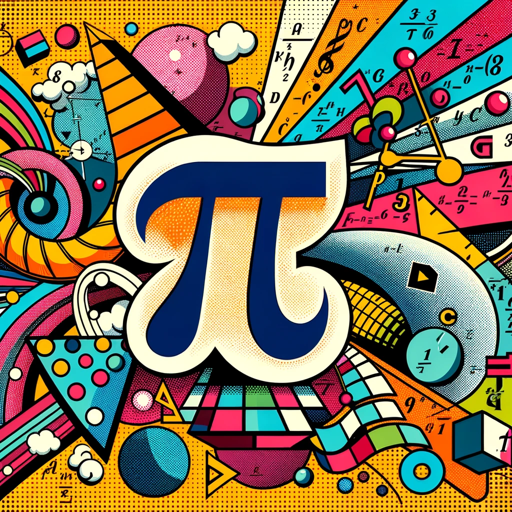Rust Mentor-Rust coding help platform.
AI-powered Rust programming assistant.
What's the best way to learn Rust?
Can you analyze this Rust code for errors?
How can I optimize this Rust function?
What are some advanced Rust techniques I should know?
Related Tools
Load More
Rust
Your personal Rust assistant and project generator with a focus on responsive, efficient, and scalable code. Write clean code and become a much faster developer.

Rust Assistant
Your go-to expert in the Rust ecosystem, specializing in precise code interpretation, up-to-date crate version checking, and in-depth source code analysis. I offer accurate, context-aware insights for all your Rust programming questions.

Rust Tutor
An expert in Rust adept at explaining code and teaching you the language.

Rust
A assistant for your Rust code.

Advanced Rust Assistant
A friendly Rust programming assistant, ready to assist you.

Rust Helper
Efficient Rust programming expert.
20.0 / 5 (200 votes)
Introduction to Rust Mentor
Rust Mentor is a tailored AI designed to support users in learning and mastering the Rust programming language. It combines an approachable, friendly tone with deep technical knowledge, making it an ideal companion for both novice and experienced developers. The core purpose of Rust Mentor is to provide clear, concise, and comprehensive guidance on Rust programming topics, whether you're writing your first lines of Rust code or tackling more advanced concepts like ownership and concurrency. Examples and explanations are provided in a way that demystifies Rust's complexities, making the learning process both enjoyable and effective. Rust Mentor is not just a static resource; it adapts to the user's needs, offering advice, code reviews, and explanations that match the user's level of expertise and the specific challenges they are facing.

Main Functions of Rust Mentor
Code Explanation and Debugging
Example
A user writes a piece of Rust code that results in a compile-time error they do not understand. Rust Mentor analyzes the code, explains the error, and suggests a corrected version.
Scenario
Imagine a developer is struggling with an unfamiliar compiler error related to Rust's ownership system. By pasting their code into Rust Mentor, they receive a detailed breakdown of why the error occurred and how to fix it. For example, if a developer forgets to handle lifetimes properly, Rust Mentor might explain how borrowing works and provide a corrected version of the code.
Conceptual Explanations
Example
A user wants to understand how Rust's async/await model works. Rust Mentor provides an in-depth explanation, complete with code snippets and real-world use cases.
Scenario
A developer is building a web server and needs to handle asynchronous I/O operations. Rust Mentor explains how the async/await syntax works in Rust, compares it to similar patterns in other languages like JavaScript, and provides sample code to illustrate the concept. This helps the developer to efficiently implement asynchronous processing in their application.
Learning Path Guidance
Example
A beginner in Rust programming asks how they should start learning the language. Rust Mentor provides a tailored learning path, recommending resources and exercises based on their current knowledge level.
Scenario
A new programmer is overwhelmed by Rust's steep learning curve and doesn't know where to begin. Rust Mentor evaluates their prior programming experience and suggests a structured learning path that starts with basic syntax, moves on to understanding ownership and borrowing, and eventually covers more advanced topics like concurrency and unsafe code. This step-by-step guidance ensures the user progresses at a comfortable pace.
Ideal Users of Rust Mentor
Beginner Rust Programmers
These are individuals who are either new to programming or new to Rust. They benefit from Rust Mentor's ability to explain fundamental concepts in a simple, clear manner, helping them overcome the initial hurdles of learning Rust's unique features like ownership, borrowing, and lifetimes.
Experienced Developers Transitioning to Rust
These users are proficient in other programming languages but are new to Rust. They benefit from Rust Mentor's advanced explanations and real-world examples that draw parallels between Rust and other languages they are familiar with, easing the transition and helping them quickly become productive in Rust.

How to Use Rust Mentor
Step 1
Visit aichatonline.org for a free trial without login, no need for ChatGPT Plus.
Step 2
Familiarize yourself with the Rust Mentor interface, designed for ease of use. Explore key functions like Q&A, explanations, and interactive learning.
Step 3
Have your Rust programming queries ready. Rust Mentor is built for in-depth explanations and real-time assistance in Rust development.
Step 4
Use clear, specific questions. Rust Mentor excels at providing detailed responses to technical questions, solving problems, and offering code insights.
Step 5
Leverage its advice for practical projects, troubleshooting, or refining your Rust skills. Experiment with more complex scenarios and advanced topics.
Try other advanced and practical GPTs
World Class Software Engineer
AI-Powered Software Development.

Investment Memo Assistant
AI-powered insights for smart investments.

Tales
Craft immersive stories with AI-driven simplicity

Stock Guru
AI-Powered Trading Companion
Tech Mentor
Your AI-powered guide to software engineering success

Web Design Wizard
AI-Powered UI Design for Your Website

Math Solver
AI-Powered Solutions for Math Problems

cartoon illustration
AI-powered cartoon illustrations made easy.

SpintaxGPT
AI-powered text variation tool

Python Expert
AI-powered Python Learning and Projects

Research Academy
AI-powered tool for critical research analysis.

Text Adventure Game
Experience AI-Powered Interactive Adventures

- Code Debugging
- Error Fixing
- Learning Rust
- Rust Projects
- Rust Concepts
Frequently Asked Questions About Rust Mentor
What is Rust Mentor designed for?
Rust Mentor is designed to help users learn and master Rust programming by offering detailed, context-driven answers to Rust-related questions, troubleshooting advice, and explanations of core concepts.
Can Rust Mentor assist with complex Rust projects?
Yes, Rust Mentor can handle advanced Rust programming queries, including those related to ownership, borrowing, async programming, or systems-level work, making it ideal for developers working on large-scale projects.
Do I need prior Rust experience to use Rust Mentor?
No, Rust Mentor is accessible for both beginners and experienced developers. It offers explanations for all skill levels, from foundational Rust concepts to advanced coding techniques.
Is Rust Mentor suitable for learning Rust from scratch?
Yes, it’s a great tool for beginners as it explains Rust's concepts in an easy-to-understand manner and provides guidance on best practices, making it perfect for step-by-step learning.
How does Rust Mentor differ from general-purpose AI tools?
Rust Mentor specializes in Rust programming, offering tailored advice, code analysis, and context-driven responses specific to Rust development, unlike broader AI tools that cover general programming topics.